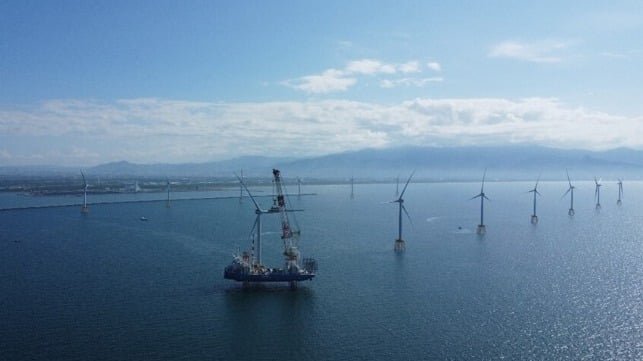Japan Passes Amendment Bill to Boost Offshore Wind Projects
Japanese parliament has recently approved an amendment bill that marks a significant milestone in the country’s renewable energy sector. The new legislation allows for the development of offshore wind projects in Japan’s Exclusive Economic Zone (EEZ), unlocking vast potential for sustainable energy generation.
The government’s decision to introduce this legal reform in January 2024 opens up over 4 million square kilometers of the Japanese EEZ for offshore wind development. Currently, wind farms in Japan are primarily located in territorial and internal waters.
According to the Japan Wind Power Association (JWPA), the country’s EEZ has the capacity to support up to 552 GW of offshore wind energy, with a focus on deep-water floating turbines.
Key Features of the Amendment Bill
The amendment bill includes provisions for the designation of specific EEZ areas for offshore wind projects. It mandates the Ministry of Economy, Trade and Industry (METI) to establish a council that will coordinate these initiatives in consultation with relevant stakeholders. Additionally, streamlined government-led environmental assessment procedures are outlined to ensure biodiversity protection.
Rebecca Williams, Deputy CEO at the Global Wind Energy Council (GWEC), commended the Japanese government’s efforts, stating, “Scaling up floating wind is crucial for enhancing Japan’s energy autonomy and resilience.”
Challenges and Opportunities
While Japan has set ambitious targets for offshore wind capacity installation, challenges such as inflation and currency depreciation have impacted the business environment for developers. Companies like Mitsubishi and Shell have faced setbacks in their offshore wind projects in Japan.
In response to these challenges, the government is exploring additional legal reforms to attract developers. Apart from the EEZ bill, there are discussions about revising offshore wind regulations to mitigate risks and reduce project costs. Proposed changes include extending project durations to 40 years and relaxing cabotage laws to allow non-Japanese flagged ships to operate in offshore wind farm areas.
Government’s Energy Plan
Wind energy plays a crucial role in Japan’s transition towards cleaner energy sources, with plans to phase out coal usage. The country has initiated its first large-scale offshore wind project and aims to achieve 10 GW of offshore wind capacity by 2030, and 45 GW by 2040.
Overall, Japan’s focus on expanding offshore wind projects underscores its commitment to sustainable energy development and reducing carbon emissions.

